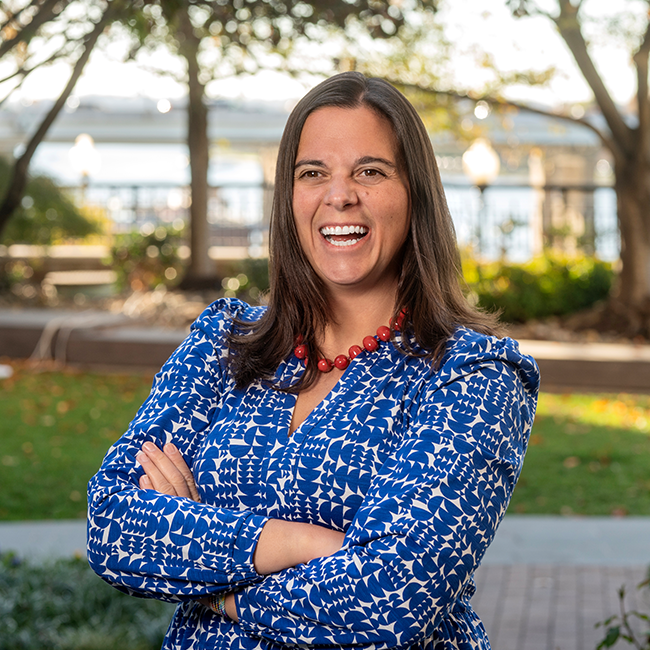Submitted electronically
Dr. Robert Califf
Commissioner
US Food and Drug Administration
Silver Spring, MD 20993
Dear Dr. Califf,
FasterCures is pleased to offer comments on FDA’s draft guidance on Decentralized Clinical Trials for Drugs, Biological Products, and Devices. FasterCures believes that encouraging accessible trials through decentralization is a key step to including the full breadth of diversity of the American people in clinical research and building robust trials that capture more scientific nuances to make the most of innovative treatments for the people who need them. Because of this, we are gratified that this concept is under such careful and thoughtful deliberation.
As you may know, the Milken Institute's FasterCures is driven by a singular goal: to save lives by speeding scientific advancements to all patients. With an independent voice, FasterCures is working to build a system that is effective, efficient, and driven by a clear vision: working with our partners to build a patient centric system where science is accelerated, unnecessary barriers are overcome, and lifesaving and life enhancing treatments get to those who need them as rapidly and as safely as possible.
Since 2020, FasterCures has engaged in activities to further understand changes to clinical research in response to the COVID-19 pandemic and the growing impetus to move clinical research closer to communities. Decentralization of trials lowers the burden of participation for all patients and allows better access to research from populations who have traditionally been unable to participate. With the increased use of digital health tools, remote monitoring, and local providers and health-care services, the possibilities for extending decentralization to increase participation are growing exponentially. With this groundswell, there are also opportunities to engage community-based sites in research better and incorporate input and preferences from many patients. In the following, we explore ways to expand those possibilities and support a broader, more relevant research base.
Decentralized Clinical Trial Design
Clinical trial participation often depends on location and ease of access for participants to become involved and stay engaged in research. Travel and time burdens associated with geographic barriers to participating may disproportionately affect historically excluded populations.[1] Encouraging decentralized approaches has the potential to broaden trial diversity, and a flexible network of locations overseen by the trial investigator(s) but located closer to trial participants offers a practical approach to expanding this type of trial.
This guidance repeatedly discusses the appropriate collection and use of different types of data. While it is clear that some forms of data are more suited to nontraditional collection methods, flexible thinking in this area is needed as the tools available are constantly updated. The development of sensors and other tools to collect and analyze data is proceeding at lightning pace, and associated data analysis capabilities are rapidly advancing. It is easy to imagine that things that once seemed unreasonable to collect at home could soon become routine.
Similarly, opportunities for digitally sharing trial materials are vast and likely to continue expanding. Many patients could benefit from the ability to review and complete trial materials in settings with less pressure and fewer time constraints than traditional sites tend to offer. Rethinking approaches to trials to emphasizing a “home first” philosophy (or collection in an alternative setting closer to participants, such as a primary care physician’s office or a pharmacy) may naturally encourage more participation, from patients or community-based health-care providers. Flexible and forward-looking regulation can support these changes for patients while maintaining and enforcing a high degree of scientific rigor and safety.
Remote Clinical Trial Visits and Clinical Trial-Related Activities
The involvement of local health-care providers is paramount to the success of decentralized trials. FasterCures supports the emphasis on incorporating telehealth visits when possible and relying on in person visits conducted by either visiting research staff or local health-care providers as a way to improve access and increase participation.
As we have advocated previously, a key component of success is adopting a broader definition of “clinical research workforce.” Additional workers will be needed to support accessibility and decentralized approaches practically. Telehealth appointments and visiting nurses are an excellent start, and encouraging routine procedures to be performed by local providers “on a fee-for-service basis” (lines 129-130 in the guidance) is a thoughtful extension.
However, we advocate for specifying that community health workers, health educators, promotores, and other nontraditional workers have an important role to play in decentralized trials and should be treated as part of the clinical research workforce. They can help answer questions, facilitate access to local clinics, and help participants access support (e.g., to report an adverse event). Besides facilitating decentralized trial conduct, they have the potential to establish connections with participants and facilitate the two-way sharing of information between researchers and communities. These workers have vital roles to play and can help with the time and level of support needed for some of these trials. For this model to be successful, however, dedicated funding and acknowledgment are required to expand their work.
Digital Health Technologies
Digital health technologies are undoubtedly reshaping the realm of possibility and access for decentralized trials. While the physical devices that are used to collect samples and monitor health and well-being are vitally important, so too is comprehensive digital health support. For instance, we fully support the draft guidance’s suggestion that sponsors have a supply of devices to give to participants who cannot use or do not have their own devices for the trial. We also encourage the FDA to simultaneously require sponsors to supply devices that independently connect to wireless internet and/or transmit data seamlessly without assuming the participant has internet access natively in their residence.
To move toward a biomedical research ecosystem where decentralized clinical trials are broadly used to reach underrepresented and underserved communities, it is essential to develop the necessary methods, tools, and resources to facilitate these trials. The definitions of “sites” and “investigators” must be updated to reflect the current realities of technology-enabled trials. Research utilizing digital tools must ensure equitable access and consider the broadband infrastructure required to support such tools. In addition to access, personnel and equipment must be in place to provide proper training to participants on how to use digital reporting tools for the study.
Roles and Responsibilities
FasterCures applauds FDA’s statement that sponsors should strive for diversity in trial populations and inclusiveness in trial procedures. Involving community-based providers and incorporating other local resources can be a major boon to inclusivity. FDA’s separate guidance that research sponsors develop Diversity Action Plans for any medical product requiring an Investigational New Drug Application or Investigational Device Exemption, or for studies intended to support marketing submissions, is related, and it goes further to require sponsors to document expected variance associated with race or ethnicity. It may also be worth emphasizing in this DCT guidance a request that sponsors consider disease prevalence in different locations or demographics as they strive for diversity in decentralized trials.
We encourage FDA to consider a broad definition of “local health care institutions” here and throughout. The landscape is rapidly evolving, with not only local hospitals, clinics, or doctors’ offices participating in study execution but also pharmacies and retail locations. The impact of all these types of locations and organizations is vast, and they can be invaluable partners in conducting relevant research that is meaningful and accessible to communities.
The clarification around who should be included in FDA Form 1572 is much needed and overdue. This form has long been cited as a hindrance to conducting more decentralized trials and enabling research, as well as posing a difficulty for new providers to participate in clinical research. Specifying that only those trial personnel who are contributing “directly and significantly” to the data collection and analyses should be listed on the form while offering a pathway to document the involvement of “local HCPs” performing clinical tasks that don’t require detailed knowledge of the study protocol is a welcome solution to a longstanding problem. Who might be considered trial personnel or “local HCPs” may be another area poised to change in a quickly shifting landscape. We would therefore encourage FDA to consider ways to interpret this distinction to provide flexibility—to “future-proof” this regulation—without sacrificing validity or safety.
Finally, in this section and throughout the guidance, there is mention of having trial materials available in relevant languages to the communities involved. We suggest encouraging such materials be available from the beginning of the trial, lest the absence of culturally appropriate materials inadvertently enforces an automatic lag in including diverse populations. Similarly, with the important role of digital health tools in decentralized trials, we encourage the instructional training materials and any reminders or guides about digital health tools used at home by patients to be readily and proactively available in the languages that participants prefer from the time of study start.
Conclusion
Decentralized trials and remote tools have become a necessity, not a novelty. Enabled by the FDA’s swift guidance during the pandemic, what was previously regarded as “risky” by sponsors suddenly became essential “risk mitigation.” A movement that had been unfolding slowly before the pandemic received a jolt of energy. FasterCures applauds the FDA for moving relatively quickly to provide comprehensive guidance to industry on the use of these tools and approaches in the post-pandemic environment to improve trial speed, efficiency, and representativeness.
Care must be taken, however, to ensure that efforts to advance the use of decentralized trials and remote tools do not further disenfranchise already underserved communities. This movement presents an opportunity to engage more patients than has been possible in the traditional model, but it could freeze out patients who lack the technology required to benefit. Building tools and systems with and for these communities will be critical to building trust in their use.
Sincerely,
Esther Krofah
Executive Vice President, Health
Milken Institute
cc: Dr. Patrizia A. Cavazzoni
Director
Center for Drug Evaluation and Research, US Food and Drug Administration
Dr. Peter Marks
Director
Center for Biologics Evaluation and Research, US Food and Drug Administration
Dr. Jeffrey Shuren
Director
Center for Devices and Radiological Health, US Food and Drug Administration
















